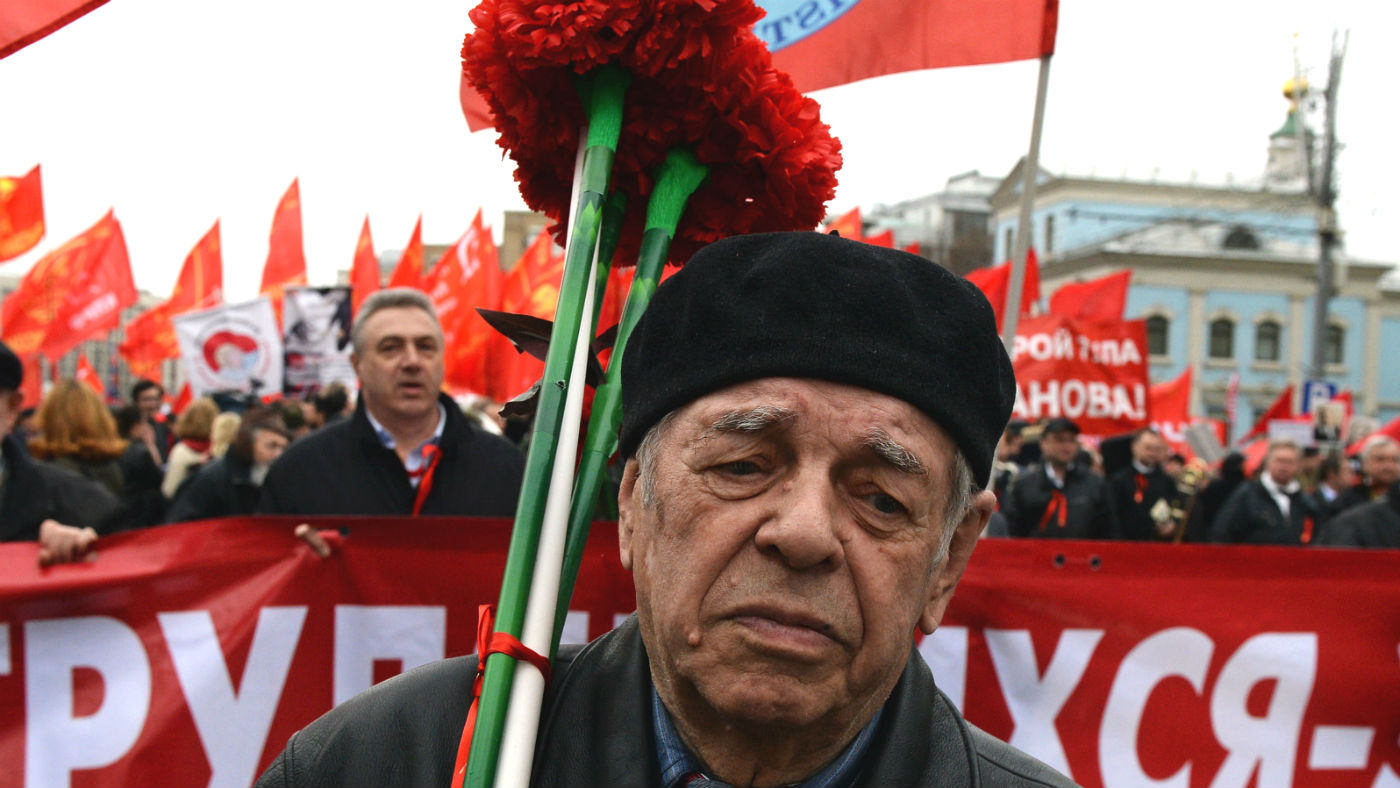Why Russians are protesting against pension reforms
Thousands take to streets after retirement age hike - but protests banned from World Cup host cities

A free daily email with the biggest news stories of the day – and the best features from TheWeek.com
You are now subscribed
Your newsletter sign-up was successful
Protests have been held in more than 30 Russian cities amid growing anger at plans to raise the pension age.
Proposals to raise the retirement age from 60 to 65 for men, and from 55 to 63 for women, were announced on the opening day of the World Cup and have since been met with widespread opposition, lowering Vladimir Putin’s approval rating.
One poll found 80% of Russians oppose the plans, which the government says are needed to cope with a shrinking workforce having to provide for an increasing number of retirees. As of Sunday, over 2.6 million Russians had signed a Change.org petition calling for the government to scrap the reforms.
The Week
Escape your echo chamber. Get the facts behind the news, plus analysis from multiple perspectives.

Sign up for The Week's Free Newsletters
From our morning news briefing to a weekly Good News Newsletter, get the best of The Week delivered directly to your inbox.
From our morning news briefing to a weekly Good News Newsletter, get the best of The Week delivered directly to your inbox.
Radio Free Europe says it would be the first pension age increase since Soviet times and “has angered many Russians who would see their retirement recede into the future under the reform”.
“Supporters of the reform say the young retirement ages are a hangover from the Soviet period and are untenable in a market economy” The Guardian reports. “Critics point out that life expectancy for men is barely higher than the new retirement age”.
The World Health Organisation estimates Russian men have an average life expectancy of just 66.
Protests, which took place before Russia’s World Cup game with Spain on Sunday, were led by opposition figure Alexei Navalny, but also included trade unionists, Communists and nationalists, says the BBC.
A free daily email with the biggest news stories of the day – and the best features from TheWeek.com
Protests were, however, banned in any World Cup host city.
The proposals have also been heavily criticised by Russia’s usually subservient press, with Moskovski Komsomolets, a popular Moscow newspaper, describing them as the “most dangerous and risky reform of President Putin's 20-year rule”.
This rare show of defiance reflects the public backlash against the changes that have brought Putin’s approval ratings down from 78% when the measures were announced to 64% in just under two weeks, according to the VTsIOM state pollster.
-
 How to Get to Heaven from Belfast: a ‘highly entertaining ride’
How to Get to Heaven from Belfast: a ‘highly entertaining ride’The Week Recommends Mystery-comedy from the creator of Derry Girls should be ‘your new binge-watch’
-
 The 8 best TV shows of the 1960s
The 8 best TV shows of the 1960sThe standout shows of this decade take viewers from outer space to the Wild West
-
 Microdramas are booming
Microdramas are boomingUnder the radar Scroll to watch a whole movie
-
 Putin’s shadow war
Putin’s shadow warFeature The Kremlin is waging a campaign of sabotage and subversion against Ukraine’s allies in the West
-
 Alexei Navalny and Russia’s history of poisonings
Alexei Navalny and Russia’s history of poisoningsThe Explainer ‘Precise’ and ‘deniable’, the Kremlin’s use of poison to silence critics has become a ’geopolitical signature flourish’
-
 What happens now that the US-Russia nuclear treaty is expiring?
What happens now that the US-Russia nuclear treaty is expiring?TODAY’S BIG QUESTION Weapons experts worry that the end of the New START treaty marks the beginning of a 21st-century atomic arms race
-
 Epstein files topple law CEO, roil UK government
Epstein files topple law CEO, roil UK governmentSpeed Read Peter Mandelson, Britain’s former ambassador to the US, is caught up in the scandal
-
 Iran and US prepare to meet after skirmishes
Iran and US prepare to meet after skirmishesSpeed Read The incident comes amid heightened tensions in the Middle East
-
 Israel retrieves final hostage’s body from Gaza
Israel retrieves final hostage’s body from GazaSpeed Read The 24-year-old police officer was killed during the initial Hamas attack
-
 China’s Xi targets top general in growing purge
China’s Xi targets top general in growing purgeSpeed Read Zhang Youxia is being investigated over ‘grave violations’ of the law
-
 Ukraine, US and Russia: do rare trilateral talks mean peace is possible?
Ukraine, US and Russia: do rare trilateral talks mean peace is possible?Rush to meet signals potential agreement but scepticism of Russian motives remain